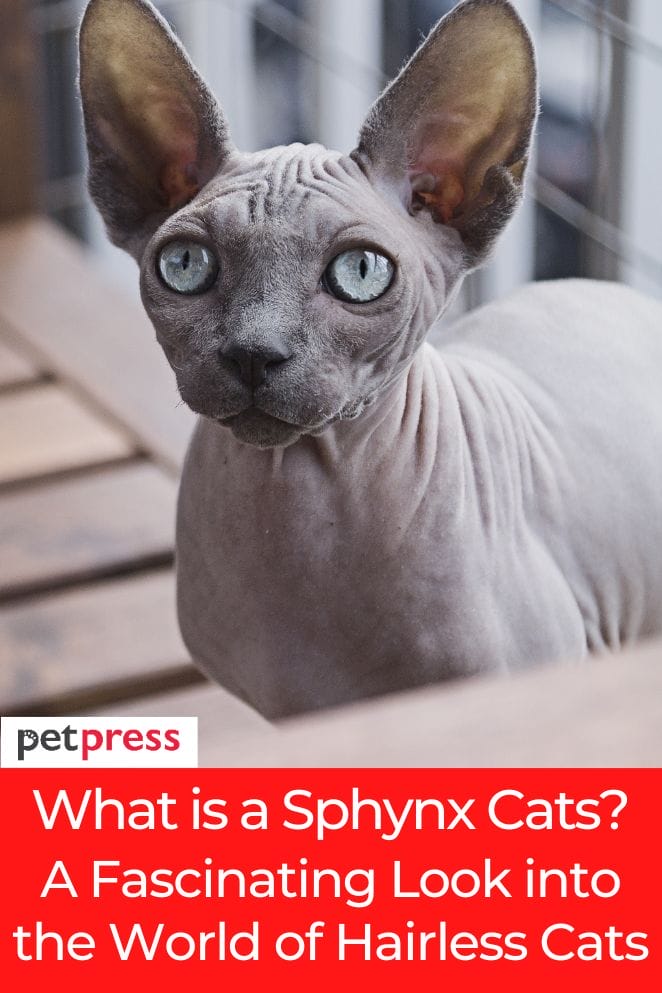
The Sphynx cat is a unique and captivating breed known for its hairless appearance and distinct features.
This breed has garnered significant attention and popularity among cat enthusiasts worldwide.
Despite their lack of fur, Sphynx cats possess a certain allure that exudes charm and sophistication.
This article ventures into the realm of these captivating felines, delving into their origins, physical attributes, temperament, grooming requirements, health considerations, behavior, and the reasons behind their excellence as cherished family companions.
The Origin and History of the Sphynx Breed
Tracing back to the early 1960s, the Sphynx cat’s story takes root in a serendipitous natural genetic mutation that resulted in hairlessness in a domestic cat residing in Toronto, Canada.
Dubbed Prune, this feline became the cornerstone for developing the remarkable Sphynx breed.
Through careful and selective breeding, the Sphynx breed was established, incorporating other breeds such as Devon Rex and Cornish Rex to enhance specific traits.
Today, the Sphynx is a recognized breed by major cat registries worldwide.
Physical Characteristics of the Sphynx Cat
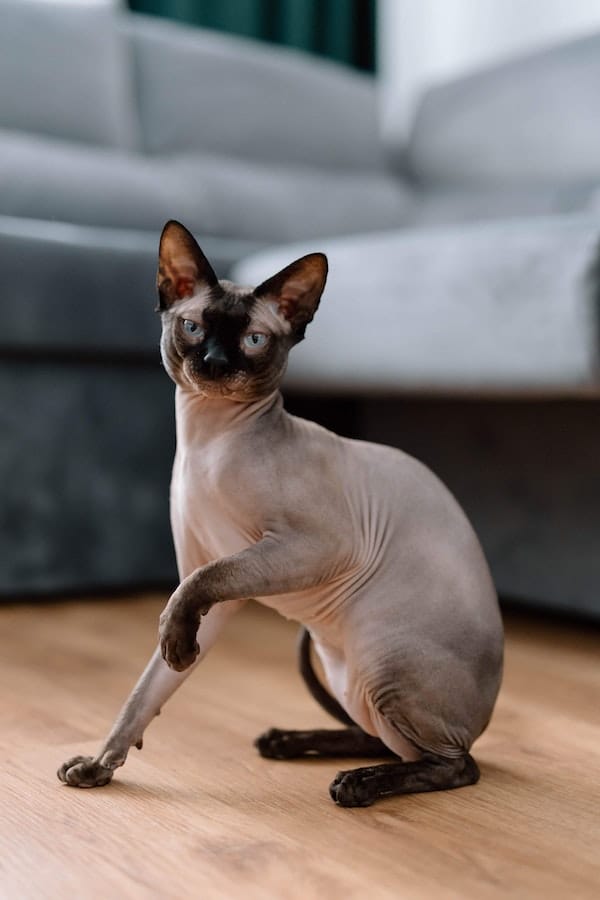
Coat and skin
The Sphynx cat’s most distinguishing feature lies in its absence of fur, yet this does not imply a complete lack of coverage.
Their skin is adorned with a delicate layer of downy hair, granting them a velvety and tender texture.
The color and patterns of their skin are as diverse as those found in their furry counterparts.
Body structure
In the realm of physicality, the Sphynx cat boasts a medium to large-sized body, characterized by a robust and muscular build.
Graceful and lean in appearance, their prominent chest and well-developed abdomen add to their allure.
Completing their elegant form is a whip-like tail that tapers gracefully to the tip, adding to their overall sleekness.
Facial features
The Sphynx cat’s allure extends to its facial features, defined by its prominent and generously proportioned ears that grace the sides of its rounded head.
High cheekbones accentuate their expressive almond-shaped eyes, which shimmer with hues ranging from green to blue.
It is worthy of note that their whiskers may be either present, broken, or entirely absent, adding to their enigmatic charm.
Temperament and Personality Traits
Revered for their affectionate and tender nature, Sphynx cats weave strong bonds with their human counterparts, gravitating towards warmth and cuddles as expressions of their devotion.
Their distinctive hairlessness does not deter them from seeking solace in their owner’s embrace, as their innate high body temperature encourages snug companionship.
These feline friends are incredibly playful and energetic, displaying kitten-like behavior well into adulthood.
They enjoy interactive play and thrive in environments that provide mental and physical stimulation.
Sphynx cats are highly social and intelligent, making them excellent companions for families and individuals alike.
Their inquisitive nature leads them to explore their surroundings with curiosity, and they are quick learners, often picking up tricks and commands with ease.
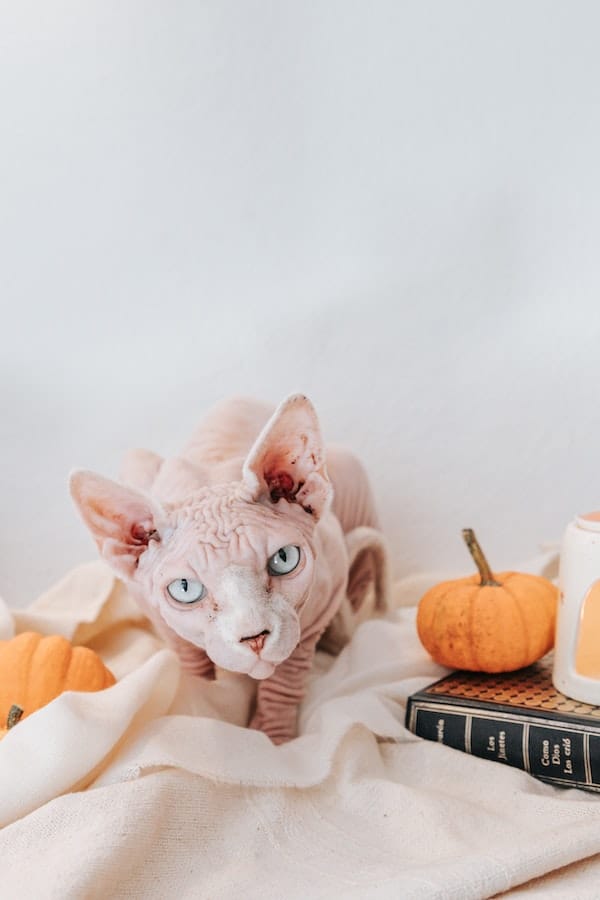
Grooming and Care for Sphynx Cats
Bathing and cleaning
Due to their lack of fur, Sphynx cats do not shed much, making them an ideal choice for individuals with allergies.
However, their exposed skin requires regular cleaning to remove oils and debris.
A weekly bath using mild cat shampoo is recommended to maintain their skin’s health and cleanliness.
Skincare and sun protection
The skin of Sphynx cats is sensitive and susceptible to sunburn, particularly in areas with less pigmentation.
Sunscreen specifically formulated for cats should be applied to protect their skin from harmful UV rays when they venture outdoors.
Dental care and nail trimming
Ensuring your pet’s dental health and paw comfort is crucial! Don’t forget to regularly brush their teeth to keep dental problems at bay.
Also, remember to trim their nails regularly to prevent discomfort from overgrowth.
Your furry companion will thank you for it!
Health considerations for Sphynx cats
While generally resilient, Sphynx cats warrant special attention to their well-being.
The absence of fur necessitates extra precautions during extreme weather, especially in colder climates, to shield them from the elements.
Their skin, being more exposed, may be prone to certain conditions, emphasizing the significance of thoughtful skincare practices.
Feeding Guidelines for Sphynx Cats
Nutritional requirements
Sphynx cats have specific dietary needs to maintain their energy levels and overall health.
A balanced diet rich in proteins, essential fatty acids, and vitamins is crucial for their well-being.
Feeding schedule and portions
Consistency is key when it comes to feeding your feline friend.
Stick to a regular feeding schedule and ensure portion sizes suit their age, weight, and activity level.
Be mindful of overfeeding to keep obesity in check and maintain their overall health and happiness.
Dietary restrictions
Certain foods should be avoided, such as those containing high levels of carbohydrates, as Sphynx cats may be prone to diabetes.
Consultation with a veterinarian can provide valuable insights into dietary restrictions and specific nutritional needs.
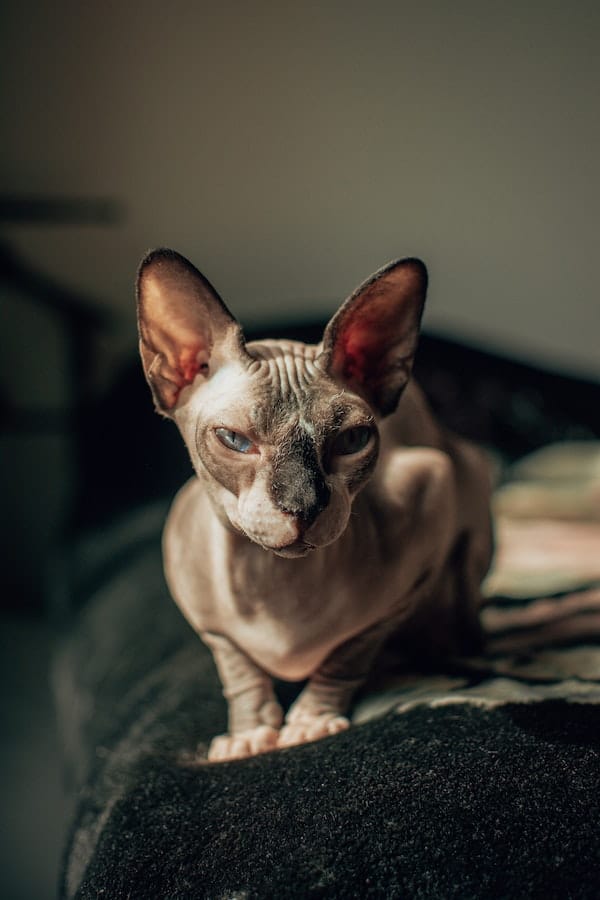
Sphynx Cat Behavior and Training
Litter box training
Sphynx cats are generally fastidious about their litter box habits and can be easily litter trained from a young age.
Providing a clean and accessible litter box is essential to encourage consistent usage.
Positive reinforcement training
Employing positive reinforcement techniques is a fantastic way to train your Sphynx cat and encourage desired behaviors.
Utilize treats and praise as rewards to reinforce good responses to commands, creating a strong bond between you and your feline companion.
Behavior Issues and Solutions
Sphynx cats may display certain behavioral issues, such as excessive vocalization or destructive behavior.
Understanding the root cause and providing appropriate solutions, such as environmental enrichment and companionship, can address these issues effectively.
Sphynx Cats as Family Pets
Suitable Living Environment
Sphynx cats are well-suited to indoor living due to their susceptibility to extreme weather conditions.
Creating an enriching indoor environment with plenty of toys and climbing structures is vital to keeping them mentally and physically stimulated.
Interaction with Children and Other Pets
Sphynx cats are known for their affable and social nature, making them excellent companions for families with children and other pets.
Proper introductions and supervised interactions are essential to ensure harmonious relationships.
Companionship and Bonding
These sociable felines thrive on companionship and form strong bonds with their owners.
Spending quality time with them and engaging in interactive play fosters a deep sense of bonding.
Myth and Misconceptions about Sphynx Cats
Allergenicity
Though no cat breed can be truly hypoallergenic, Sphynx cats are often perceived as a better option for allergy sufferers because they shed less.
Their reduced shedding can minimize the spread of allergens, making them a potentially more manageable choice for individuals with allergies.
Origin of the name
Contrary to what many believe, the name “Sphynx” is not inspired by the famous Egyptian monument.
Instead, it derives from the mythological creature of the same name, which is a nod to the breed’s distinctive and striking appearance.
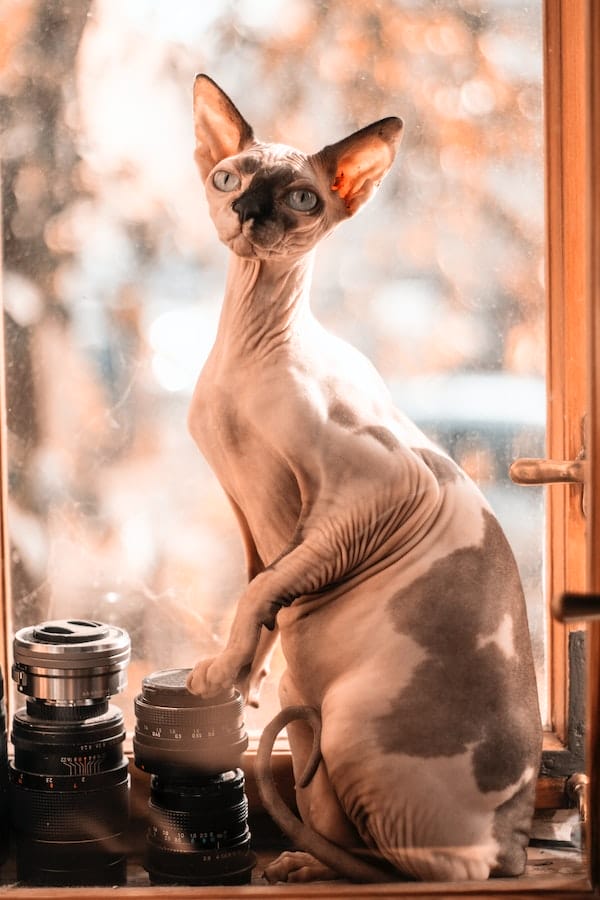
Conclusion
The Sphynx cat, with its distinctive hairless appearance and endearing personality, is an exceptional and enchanting feline companion.
Their playful and affectionate nature, combined with their intelligence and social disposition, makes them ideal pets for families and individuals seeking a devoted and interactive feline friend.
Adhering to their specific grooming needs, health considerations, and behavioral training can ensure a happy and fulfilling life for these captivating creatures in the loving embrace of their human
FAQs
While no cat breed is entirely hypoallergenic, Sphynx cats are often considered more suitable for individuals with allergies due to their reduced shedding.
Sphynx cats’ skin is sensitive and susceptible to sunburn. Apply cat-specific sunscreen to protect their skin from harmful UV rays when they venture outdoors.
Sphynx cats may require additional protection from extreme temperatures due to their lack of fur. They may also be prone to skin conditions, necessitating proper skincare.
Yes, Sphynx cats can be easily litter trained from a young age. Providing a clean and accessible litter box encourages consistent usage.
Yes, Sphynx cats are known for their affable and social nature, making them excellent companions for families with children and other pets. Proper introductions and supervised interactions are essential to ensure harmonious relationships.
- Does Cat Litter Melt Ice? The Complete Guide to Winter Safety - January 30, 2026
- Happy Tail Dogs: Understanding This Common Canine Condition - January 29, 2026
- How Cold Can Outdoor Cats Handle? Feline Winter Safety - January 27, 2026


GIPHY App Key not set. Please check settings